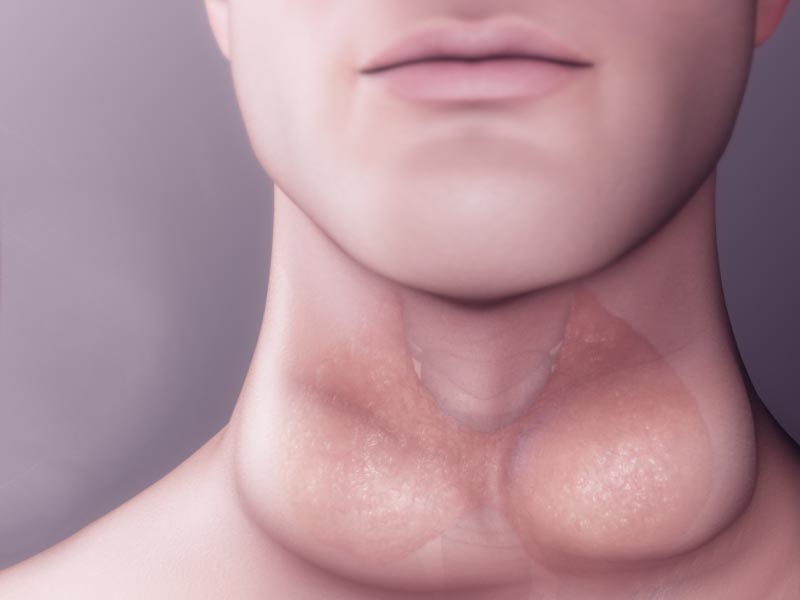Thyroid

The thyroid is a small organ in the front of the neck that is wrapped around the windpipe. The thyroid is a gland. Each individual has glands throughout the body where they produce and release substances that help the body do a certain thing. The thyroid makes hormones that help control several vital functions in the body.
When the thyroid does not function well, it may impact your entire body. If your body makes too much thyroid hormone, you may develop a condition called hyperthyroidism. Hypothyroidism is where your thyroid makes too little thyroid hormone.
What Does Thyroid Do?
The thyroid has an important role in the body. It releases and controls thyroid hormones that control metabolism. Metabolism is a process where the food you take into your body is transformed into energy. The thyroid controls your metabolism with T3 and T4. These are hormones that are produced by the thyroid. They tell the cells of the body how much energy to use. When your thyroid functions well, it will maintain the right amount of hormones to keep your metabolism working at the right rate.

What Is Thyroid Disease?
Thyroid disease is the overall term for a medical condition that keeps your thyroid from making the right amount of hormones. Your thyroid usually makes hormones that keep your body functioning generally.
When the thyroid makes excessive thyroid hormone, your body uses energy too fast. This is called hyperthyroidism. Using energy too quickly will do more than make you tired which makes your heart beat faster. It causes you to lose weight without trying and even makes you feel nervous. In addition, if your thyroid makes too little thyroid hormone, it is called hypothyroidism. When you have too little thyroid hormone in your body, it can make you feel tired, you might gain weight and you may even be unable to tolerate cold temperatures.

Thyroid Disease Treatment
The goal of your health care provider is to return your thyroid hormone levels to normal. This can be done in different ways and each specific treatment will depend on the cause of your thyroid condition.
If you have high levels of thyroid hormones or hyperthyroidism, treatment options can include:
- Anti-thyroid drugs such as Methimazole and Propylthiouracil. These are medications that stop your thyroid from making hormones.
- Radioactive iodine type of medicine. This treatment damages the cells of your thyroid which prevents it from making high levels of thyroid hormones.
- Beta-blockers are medications that don’t change the number of hormones in your body. These help control your symptoms.
- Surgery is a more permanent form of treatment. Your healthcare provider may surgically remove your thyroid. It will stop it from creating hormones. Conversely, you will need to take thyroid replacement hormones for the rest of your life.
If you have low levels of thyroid hormones, the main treatment option is:
- Thyroid replacement medication. This medication is a synthetic way to add thyroid hormones back into your body. One drug that’s commonly used is called Levothyroxine. By using the medicine, you can control thyroid disease and live a normal life.



